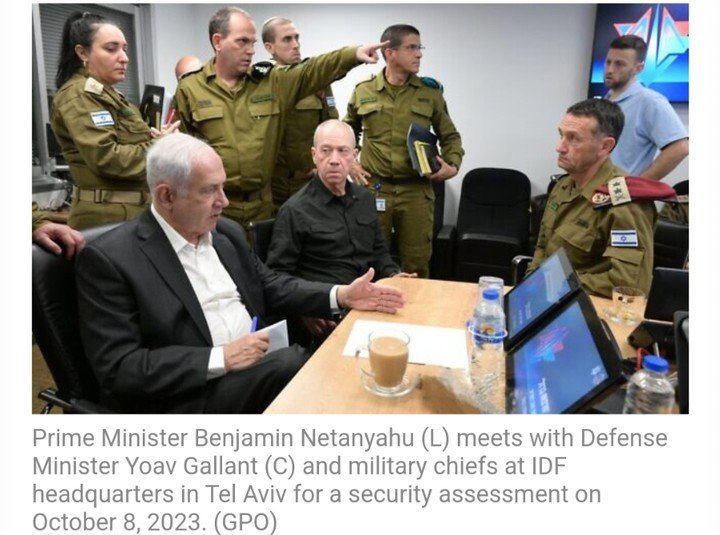Israel Ignored Repeated Warnings Of ‘Something Big’- Egypt Intelligence Official
Cairo official says Israel focused on West Bank instead of Gaza; Egypt’s spy chief said to warn PM of ‘terrible operation,’ Netanyahu’s office denies
Mounting questions over Israel’s massive intelligence failure to anticipate and prepare for a surprise Hamas assault were compounded Monday when an Egyptian intelligence official said that Jerusalem had ignored repeated warnings that the Gaza-based terror group was planning “something big” — which included an apparent direct notice from Cairo’s intelligence minister to the prime minister.
The Egyptian official said Egypt, which often serves as a mediator between Israel and Hamas, had spoken repeatedly with the Israelis about “something big,” without elaborating.
He said Israeli officials were focused on the West Bank and played down the threat from Gaza. Prime Minister Benjamin Netanyahu’s government is made up of supporters of West Bank settlers who have demanded a security crackdown there in the face of a rising tide of violence over the last 18 months.
“We have warned them an explosion of the situation is coming, and very soon, and it would be big. But they underestimated such warnings,” the official, who spoke on condition of anonymity because he wasn’t authorized to discuss the content of sensitive intelligence discussions with the media, told The Associated Press.
In one of the said warnings, Egypt’s Intelligence Minister General Abbas Kamel personally called Netanyahu only 10 days before the massive attack that Gazans were likely to do “something unusual, a terrible operation,” according to the Ynet news site.
Unnamed Egyptian officials told the site they were shocked by Netanyahu’s indifference to the news and said the premier told the minister the military was “submerged” in troubles in the West Bank.
The Prime Minister’s Office denied the reports in a statement Monday, claiming they were a “complete lie.”
“No early message came from Egypt and the prime minister did not speak or meet with the intelligence chief since the establishment of the government — not indirectly or directly. This is completely fake news,” the statement read.
However, Israel was not only ignoring clear warnings from its allies.
For Palestinians in Gaza, Israel’s eyes are never very far away. Surveillance drones buzz constantly in the skies. The highly secured border is awash with security cameras and soldiers on guard. Intelligence agencies work sources and cyber capabilities to draw out information.
But Israel’s eyes appeared to have been closed in the lead-up to the surprise onslaught by the Hamas terror group, which broke through Israeli border barriers and sent hundreds of terrorists into Israel to carry out a brazen attack that killed over 700 people and wounded over 2,000.
Israel’s intelligence agencies have gained an aura of invincibility over the decades because of a string of achievements. Israel has foiled plots seeded in the West Bank, allegedly hunted down Hamas operatives in Dubai and has been accused of killing Iranian nuclear scientists in the heart of Iran. Even when their efforts have stumbled, agencies like the Mossad, Shin Bet and military intelligence have maintained their mystique.
But the weekend’s assault, which caught Israel off guard on a major Jewish holiday, plunges that reputation into doubt and raises questions about the country’s readiness in the face of a weaker but determined foe. Over 48 hours after the start of the attack, Hamas terrorists continued to battle Israeli forces inside Israeli territory, and over 100 Israelis were in Hamas captivity in Gaza.
“This is a major failure,” said Yaakov Amidror, a former national security adviser to Prime Minister Benjamin Netanyahu. “This operation actually proves that the [intelligence] abilities in Gaza were no good.”
Amidror declined to offer an explanation for the failure, saying lessons must be learned when the dust settles.
Rear Adm. Daniel Hagari, the chief military spokesman, acknowledged the army owes the public an explanation. But he said now is not the time. “First, we fight, then we investigate,” he said.
Some say it is too early to pin the blame solely on an intelligence failure. They point to a wave of low-level violence in the West Bank that shifted some military resources there and the political chaos roiling the country over steps by Netanyahu’s far-right government to overhaul the judiciary. The controversial plan has threatened the cohesion of the IDF, seen as the people’s army.
But the apparent lack of prior knowledge of Hamas’s plot will likely be seen as a prime culprit in the chain of events that led to the deadliest attack against Israelis in decades.
Israel withdrew troops and settlers from the Gaza Strip in 2005, stripping it of a close handle on the happenings in the territory. But even after Hamas overran Gaza in 2007, Israel appeared to maintain its edge, using technological and human intelligence.
It claimed to know the precise locations of Hamas leadership and appeared to prove it through the targeted killing of terror leaders in surgical strikes, sometimes while they slept in their bedrooms. Israel has known where to strike underground tunnels used by Hamas to ferry around fighters and arms, destroying miles (kilometers) of the concealed passageways.
Despite those abilities, Hamas was able to keep its plan under wraps. The ferocious attack, which likely took months of planning and meticulous training and involved coordination among multiple terror groups, appeared to have gone under Israel’s intelligence radar.
Amir Avivi, a retired Israeli general, said that without a foothold inside Gaza, Israel’s security services have come to rely increasingly on technological means to gain intelligence. He said terrorists in Gaza have found ways to evade that technological intelligence gathering, giving Israel an incomplete picture of their intentions.
“The other side learned to deal with our technological dominance and they stopped using technology that could expose it,” said Avivi, who served as a conduit for intelligence materials under a former military chief of staff. Avivi is president and founder of Israel Defense and Security Forum, a hawkish group of former military commanders.
“They’ve gone back to the Stone Age,” he said, explaining that terrorists weren’t using phones or computers and were conducting their sensitive business in rooms specially guarded from technological espionage or going underground.











Add Comment